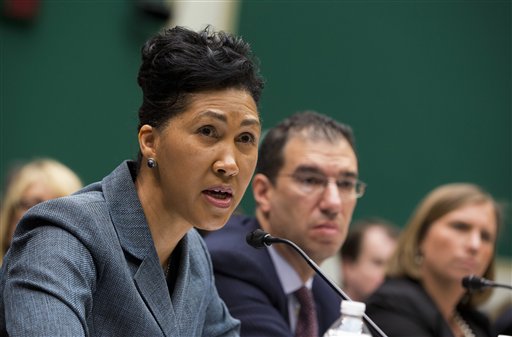So, ponder this hypothetical case.
Videos By Rare
A corporation comes up with a feel-good project that’s designed to help people. Corporate public-relations teams talk up the altruistic nature of the plan. The campaign attracts more than $400 million in private investment money. Everyone is super excited to see the finished product.
When the corporation finally rolls out the super-hyped project, it is immediately clear that it is a stupendous dud. Promises have been broken, long-term goals are unlikely to be met and investors are screaming mad that they had been so roundly deceived.
“Someone must pay!”
“Damn corporations, always feeding off the public!”
“Someone should go to jail for perpetrating such a scheme!”
In this scenario, the U.S. Justice Department would likely launch an investigation for fraud, racketeering and other criminal offenses. Top corporate executives would become household names — uttered with contempt for how they had so adroitly duped the public out of their hard-earned money.
OK, now. With that set-up in mind, replace the “corporation” with the team in Washington that ushered in the Affordable Care Act (a.k.a. Obamacare) and what have we got? Calls for accountability or an investigation? Not by a long shot.
We’ve gotten apologies, handwringing and promises to fix the horrendously malfunctioning website. The architects of the $400 million-plus government program have pretty much ignored questions about problems discovered since Obamacare launched. The questions have nothing to do with computer glitches and everything to do with built-in systemic flaws.
Let’s be honest. There is a lot more wrong with the ACA than just that poorly designed and executed website.
At the very least, I’d like to know who made the call to hire CGI — a Canadian-based computer firm — to design a website representing an American president’s legacy program. CGI is a firm with a sketchy reputation for large-scale computer designs. In 2012, the company failed to build and launch a $46.2 million diabetes registry in Canada.
Who in the world thought that just a year later CGI could handle designing a $98 million dollar Obamacare website — more than double the amount of the botched project they left behind in Canada? Didn’t anyone in Washington vet this company’s past performance record?
During ragingly partisan congressional hearings this week, Health and Human Services Secretary Kathleen Sebelius apologized to consumers for the “flawed launch” of HealthCare.gov, but said she had nothing to do with choosing CGI.
As a taxpayer whose money was used to fund this thing, I’d like to have a name, please.
And I’d like someone — maybe Democratic leaders on Capitol Hill who rammed through Obamacare — to answer questions about the fairness of the system. Like, who came up with the bright idea that struggling young people should be forced to shoulder an unbalanced premium burden or face government fines?
Or this question: Will those who sign up for the program really get good medical care when countless top hospitals and doctors nationwide say they plan to refuse to participate?
And why are a shocking number of Americans already getting cancellation notices from their private insurance companies — hundreds of thousands of cancellations so far. I thought Obamacare was designed to put people on the insurance rolls, not kick them off.
What was it the president has been promising?
“If you like your health plan, you will be able to keep your health care plan. Period.”
“No matter what you’ve heard, if you like your doctor or health care plan, you can keep it.”
And my personal favorite: “Americans must have the freedom to keep whatever doctor and healthcare plan they have.”
Yeah, right. Tell me, how could the president be so wrong about a major feature of his pet project?
The consultancy firm Health Policy and Strategy Associates estimates that of the 19 million Americans covered in the individual insurance market, about 16 million of them have plans that do not measure up to Obamacare’s stringent new rules. Those plans without the “essential benefits,” like coverage for substance abuse, mental-health or maternity services are being cancelled — stranding citizens in a sea of doubt about what to do next.
Now there are reports that the administration realized well in advance that, once ACA went into effect, most private insurance companies would be forced to cancel millions of American’s policies.
Yet, the president kept promising no one would lose his or her healthcare plan.
This program is going to cost millions of us more than just the hundreds of millions earmarked to launch it. The Manhattan Institute has studied the practical effect of Obamacare and reports that, as customers struggle to replace their cancelled policies, they’ll face out-of-pocket premium increases that average 62 percent for women and a mind-boggling 99 percent increase for men.
Look, I wish life was completely fair and everyone had cradle-to-grave high-quality health insurance. But that’s never going to happen. There has to be a better way than the path we’re on. And take it from me, the inherent problems with Obamacare are not going to smooth out over time. It’s likely they could get worse.
It is simply not fair to punish the majority in an effort to provide the minority with health insurance.
It is time to set aside all the political in-fighting surrounding this fundamentally flawed program. Looking at it through commonsense glasses, it is plain to see ACA has “boondoggle” written all over it. It is time to start talking about how to either fix it or toss it out and go back to the drawing table.
We are so quick to demand corporate responsibility — and swift punishment — when we perceive consumers have been had. Why are we so reticent to hold the government to the same standard? After all, we’re paying the bill.
© CREATORS.COM

